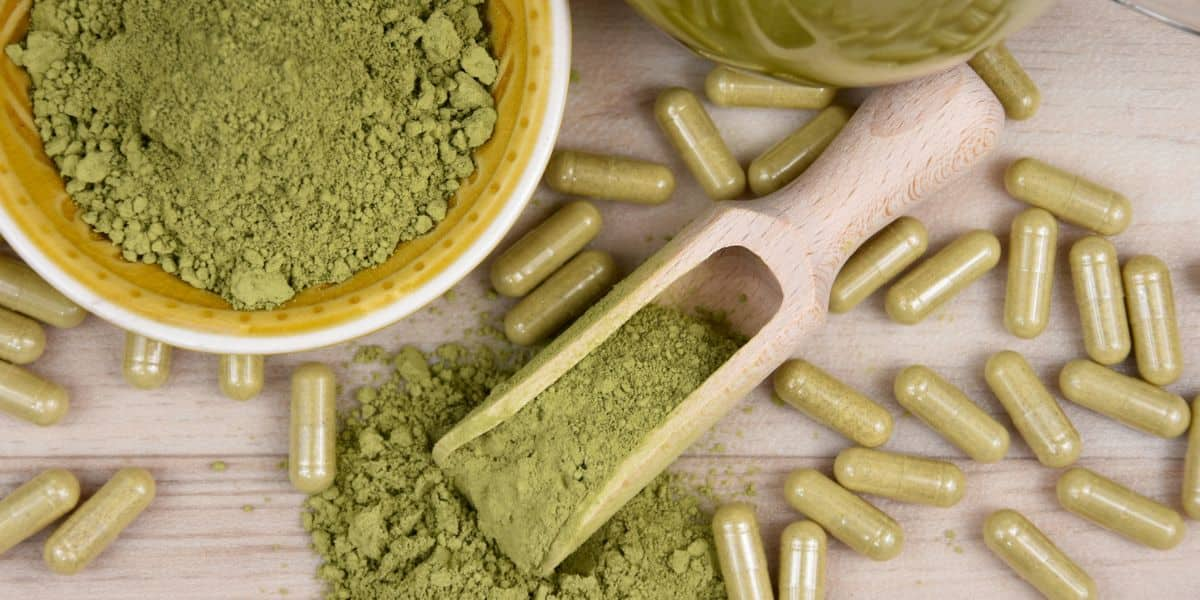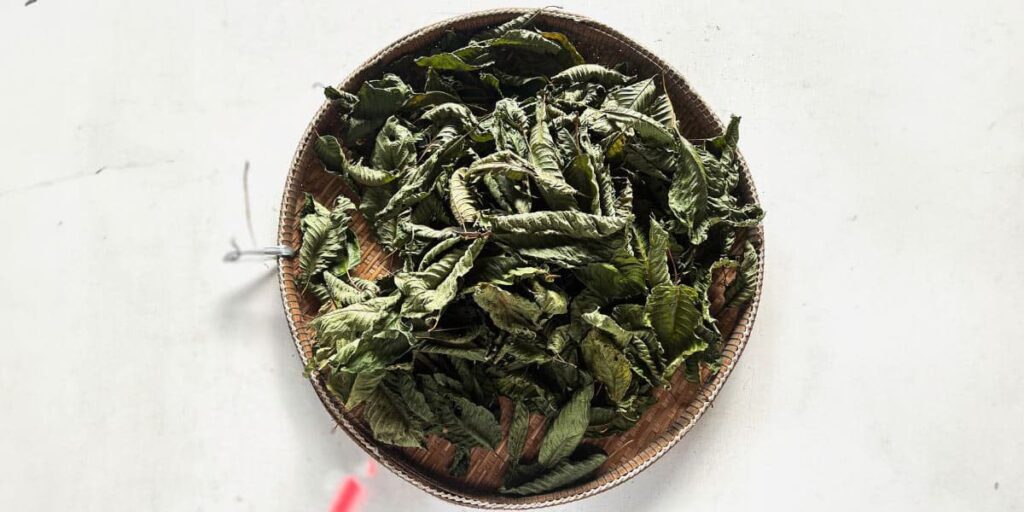Kratom Withdrawal Symptoms and Detox Treatment


Kratom is often promoted as a natural remedy with health benefits, but it can cause intense withdrawal for users.
Known scientifically as Mitragyna speciosa and hailing from Southeast Asia, kratom is a member of the coffee family. Low doses can increase energy and make the user feel more alert. At higher doses, it acts like opioids, reducing pain and causing drowsiness.
It’s used to help treat opioid withdrawal and reduce cravings because it interacts with the brain’s opioid receptors. Despite its chemical composition being different from opioids, those who discontinue kratom use experience withdrawal symptoms that are remarkably similar, although the symptoms are less severe.
It is important to understand kratom withdrawal for those who want to quit safely and effectively. It is also important to know the best treatment options for addiction.
Is Kratom Legal?
In the United States, kratom is technically legal, but that doesn’t mean it’s safe. The Food and Drug Administration (FDA) warns about the risks of addiction, misuse, and dependence from using kratom.
Starting in 2012, the FDA has been actively intercepting and analyzing imports of dietary supplements that include kratom. To date, kratom lacks FDA approval for any medicinal applications. The Drug Enforcement Administration (DEA) is concerned about kratom but has not classified it as a controlled substance yet. Furthermore, investigations have revealed contamination issues, with numerous kratom samples testing positive for harmful bacteria and other impurities.
Numerous entities, including the NIDA, or the National Institute on Drug Abuse, and the NCCIH, known as the National Center for Complementary and Integrative Health, are currently investigating the possible therapeutic advantages of kratom, considering its roots in traditional medicine and its recent emergence in Western pharmacology. The results of these investigations could significantly influence kratom’s legal standing, potentially altering its classification based on newfound medical uses.

Effects of Kratom
Internationally, kratom has long been a part of traditional medicinal practices and ceremonial rites, enduring for hundreds of years. These communities thoroughly document issues of kratom dependency and addiction, albeit perceiving them distinctively compared to other substance dependencies.
Recently, in the US, kratom is being sold as a dietary supplement. It is promoted for its legal stimulant effects, pain relief, and help with opioid withdrawal. Kratom comes in liquid, tablet, and powder forms. You can purchase it at gas stations, specialty stores, convenience shops, and online.
Kratom is widely used for its benefits and effects, including:
- Improving focus
- Providing pain relief
- Boosting mood
- Inducing sedation
- Alleviating anxiety
- Managing cravings associated with opioid use disorder
- Mitigating symptoms of opioid withdrawal
A significant risk associated with using kratom for the purposes mentioned is the variability in potency across different batches, leading to inconsistent dosing. Taking kratom alone can be risky, especially when mixed with other drugs, causing harmful effects and interactions.
The variability and self-medication aspects contribute to potentially harmful outcomes. Between 2010 and 2015, the Centers for Disease Control and Prevention (CDC) noticed a big rise in calls to poison control centers about kratom. A lot of these calls were because people were experiencing withdrawal symptoms after suddenly stopping using kratom.
Kratom-related deaths are rare because not all places test for it. Kratom-related deaths are uncommon because not all locations test for it. When kratom is detected in someone’s system, it is usually combined with other substances. This makes it difficult to determine if kratom alone was the cause of death.
Kratom Withdrawal Symptoms
Kratom withdrawal symptoms can vary from person to person and may begin shortly after the last dose. People who have only tried kratom a few times may not experience withdrawal symptoms. However, those who have used kratom for a long time and are dependent on it may experience a variety of symptoms. These symptoms can range from mild to severe.
Kratom withdrawal experience depends on factors like age, health, mental health, substance use, addiction duration, and detox setting.
The wide range of kratom withdrawal symptoms includes various physical and psychological effects, including:
- Diarrhea
- Nasal congestion
- Tearful eyes
- Symptoms resembling the flu
- Development of goosebumps
- Experiencing chills
- Volatile mood changes
- Increased anxiety
- Feelings of depression
- Reduced appetite
- Alterations in heart rate and blood pressure
- Experiencing dizziness
- General fatigue
- Trouble sleeping
- Increased irritability
- Aching muscles
- Stomach discomfort
- Perspiration
- Feeling sick
- Throwing up
During kratom detox, you may become dehydrated. This can happen because of symptoms such as sweating, nausea, vomiting, diarrhea, and loss of appetite. These symptoms cause them to lose fluids.
It is advised to have medical supervision during detox. This can help with withdrawal symptoms and ensure proper intake of fluids and nutrients. Medical supervision can prevent further complications for kratom users.
Kratom Withdrawal Timeline
Similar to withdrawal symptoms, the timeline for kratom withdrawal differs from person to person. Medical experts are still studying kratom withdrawal, but it usually lasts 7 to 10 days.
The typical timeline for kratom withdrawal is as follows:
- 3 to 12 hours after the most recent dose of kratom:
Cravings and anxiety intensify, accompanied by the onset of muscle soreness and sweating begins.
- 12 to 24 hours after the most recent dose of kratom:
Symptoms resembling the flu and heightened agitation, mood fluctuations, and intense cravings will manifest strongly. The emergence of vomiting, diarrhea, and a profound sense of fatigue also marks this period.
- 24 to 72 hours after the most recent dose of kratom:
Long-term kratom users may experience fever, anxiety, depression, flu-like symptoms, and changes in appetite. These symptoms can occur in people who have been using kratom for an extended period of time. Fever, anxiety, depression, flu-like symptoms, and changes in appetite are common among long-time kratom users. The discomfort from these symptoms makes relapse more likely during this time.
- 3 to 7 days after the most recent dose of kratom:
As you continue to withdraw, most symptoms will start to go away. However, you may still experience mental cravings and distress. If you have used kratom frequently or have a history of opioid addiction, you may experience prolonged withdrawal symptoms. These symptoms can resurface over a period of weeks or even months.

Kratom Detox
Detox is the first step in recovery, but it is not the same as full addiction treatment. Understanding this is crucial. Even though kratom is not considered a drug of abuse, people who use it often show signs of addiction. They can benefit from treatments that address the physical, mental, and behavioral aspects of addiction.
Kratom Addiction Treatment
A different path is attainable for those grappling with kratom dependence.
White Oak Recovery Center (WORC) provides a fresh start in a caring and empowering environment. It uses proven, evidence-based treatment methods with immense focus on each resident’s needs. WORC offers people a chance to begin their recovery journey. The environment is supportive and tailored to each patient’s specific needs.
At WORC, we collaborate with you to develop a treatment plan that aligns with your goals and life circumstances. This plan will assist you in achieving a life free from substance use.
Our private residential facility provides medical detox with 24/7 medical care to protect your physical and mental health. We employ a comprehensive approach, including dual diagnosis and medication-assisted treatments, to address and manage any co-occurring mental health issues effectively.
Reach out to us now to embark on the journey to a rewarding and healthy future in recovery. Our caring team is here to discuss your treatment options and answer any questions.

Am I covered for addiction treatment?
Your insurance may cover treatment. Call now for an entirely free and confidential assessment. Recovery starts with a phone call.

- “FDA and Kratom.” US Food and Drug Administration, Feb. 2024.
- “Is Kratom Safe?” National Institutes of Health, Aug. 2022.
- “Kratom.” National Center for Complementary and Integrative Health, Apr. 2022.
- “Kratom.” National Institute on Drug Abuse, Mar. 2022.
- Veltri, Charles, and Grundman, Oliver, “Current Perspectives on the Impact of Kratom Use.” Substance Abuse and Rehabilitation, Jul. 2019.
Medical Disclaimer:







